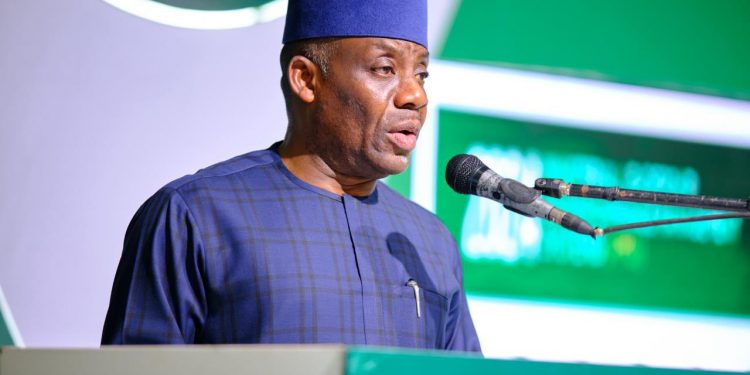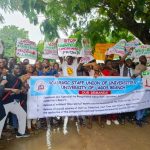The Federal Government has clarified that it does not have any binding agreement with the Academic Staff Union of Universities (ASUU), despite ongoing protests by the union across the country.
Speaking to journalists in Abuja on Thursday, the Minister of Education explained that the document often referred to as an agreement is, in fact, a draft and not an enforceable accord. He stressed that the Tinubu-led administration is focused on reaching practical, constitutionally backed solutions that will guarantee uninterrupted academic activities in Nigerian universities.
According to him, government is determined to avoid what he described as “bogus or unsustainable agreements” that have in the past triggered repeated breakdowns in university education. “We are committed to solving this problem once and for all. What has lingered since the 2009 and 2021 agreements will now be addressed in a sustainable way. The President has made it clear that every promise made to ASUU and Nigerians will be fulfilled truthfully and honestly,” he said.
The Minister also assured parents and students that the current protests would not escalate into a full-blown strike, noting that government is maintaining regular engagements with ASUU leaders.
The dispute between ASUU and the Federal Government stretches back to 2009, when both sides signed an agreement covering improved university funding, staff welfare, and infrastructure upgrades. Successive governments have been accused of failing to honour the deal, leading to recurring strikes that have disrupted academic calendars for more than a decade.
In 2022, ASUU embarked on an eight-month strike—one of the longest in Nigeria’s history—demanding the implementation of the 2009 agreement and its renegotiation to reflect current realities. Although the strike was eventually suspended after negotiations, the union insists that many of its demands remain unmet, particularly regarding funding commitments and salary structures. The recent protests are the latest show of frustration, with ASUU warning that unresolved issues could spark another shutdown of public universities.
The Minister disclosed that the Ministry of Education convened a high-level meeting on Wednesday, August 28, with key stakeholders to harmonise ASUU’s proposals. The meeting, he said, was attended by the Minister of State for Education, the Minister of Labour and Productivity, the Solicitor-General of the Federation, and Permanent Secretaries from the Ministries of Education, Labour, and Justice. Leaders of major agencies such as the National Universities Commission (NUC), the Salaries and Wages Commission, and the Budget Office also participated.
He explained that ASUU’s submissions were reviewed in detail, and a technical team is currently working on producing a final version of the report. The “clean report” will then be forwarded to the Yayale Ahmed-led committee, which is responsible for renegotiating the 2009 ASUU/FG agreement.
The Minister emphasised that any future pact with ASUU would be both practical and legally sound. “We want an agreement where every component is actionable and feasible. Nigerians can be assured that this government will keep our schools open and ensure our children remain in classrooms,” he said.
He further noted that the Ministry of Justice would henceforth play a direct role in all negotiations to ensure that agreements comply with constitutional provisions and avoid the pitfalls of the past.
With government pushing for legally binding and realistic solutions, and ASUU continuing to mount pressure through protests, all eyes are now on the outcome of the technical review and the eventual renegotiation process to see whether it can finally end the cycle of disputes that have crippled Nigeria’s public universities for years.










